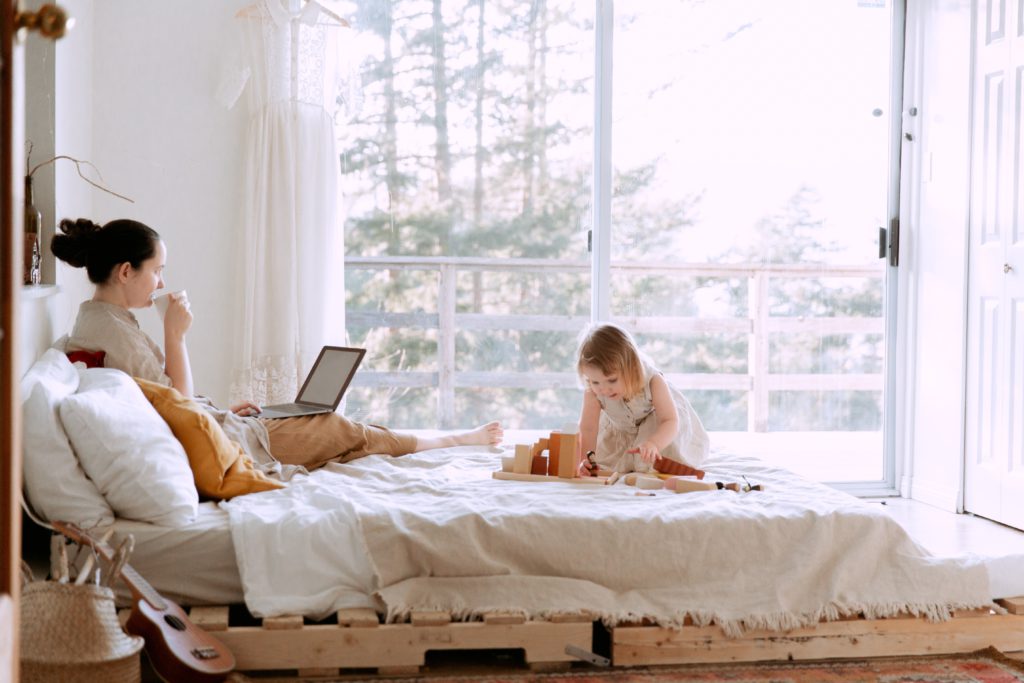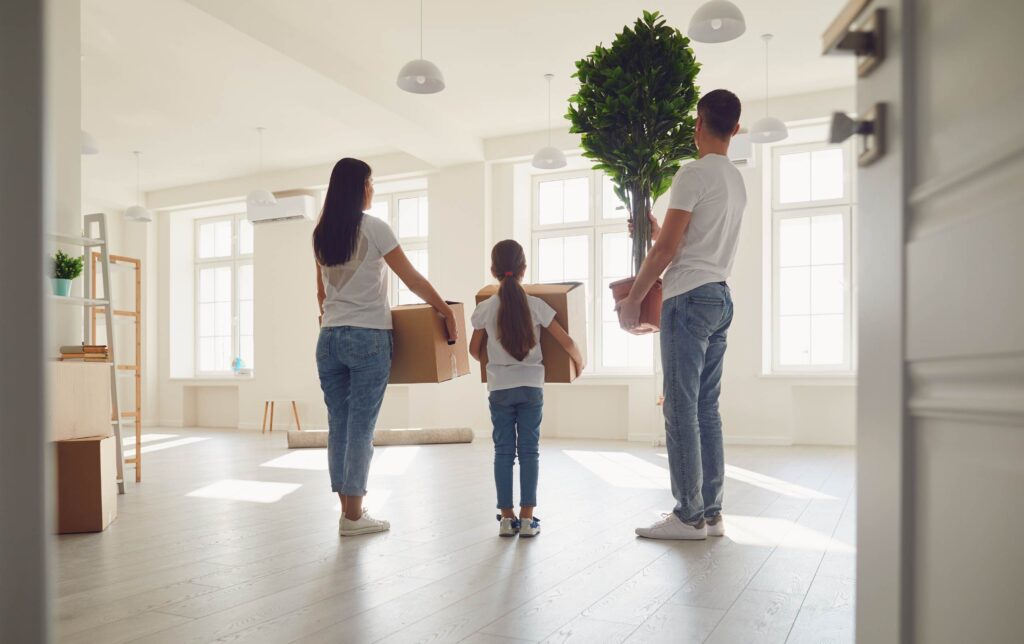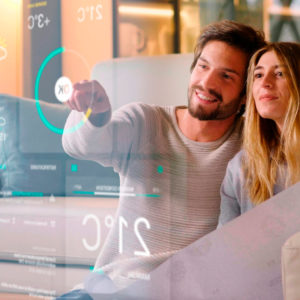What is home automation
Meaning of home automation
Home automation is defined as the set of systems and technologies capable of automating a home in an intelligent way in order to provide security, well-being and comfort. This is achieved through a central operations centre where information is collected from any object or device with an Internet connection: climate and ventilation, lighting points, security devices, etc.

The term domotics comes from the union of the words domus (which means house in Latin) and autonomous (from the Greek: αὐτόνομος; ‘that governs itself’).
But why should we not confuse these devices with a smart ecosystem? Because the devices’ ability to be connected to a smartphone only allows their users to turn them on and act on them. However, a smart ecosystem is one that allows devices to interact with each other and run without the need for the human factor.
Need an example? Well, imagine that when you wake up, your smart home is activated by opening the blinds, turning up the heating, playing your favourite song or starting the coffee machine. Appetising, isn’t it? Read on to find out more…
In addition to controlling your home from your tablet or mobile phone through a single app, your smart home also allows you to communicate with it thanks to voice assistants such as Alexa, Siri or Google Home, among others.
Here are some processes or scenes that can be integrated from home automation:
- Lighting control.
- Access control.
- Security and protection.
- Climate control.
- Control of shutters, blinds and motorised awnings.
- Home energy control and savings.
- Garden watering and purification system
- Water and gas cut-off actuator.
- Presence simulation as a security tool.
- Automatic warnings of the arrival of third parties to the home.
- Automation and personalisation of scenes.
- And much more!

The main advantage of home automation in general rules is to improve the quality of life of the user, in addition to the three fundamental pillars that it presents, such as:
- Security and protection: By protecting the home with updated information and control devices linked directly to the owner’s mobile phone. All controlled through a single mobile application.
- Energy efficiency and sustainability: Thanks to quick and easy access to the consumption data of the home that are connected to all energy sources.
- Comfort: Activate actions or scenes via the app or voice assistants. All scenes are fully customisable and it is the homeowner who decides how to do them according to their needs and interests.


